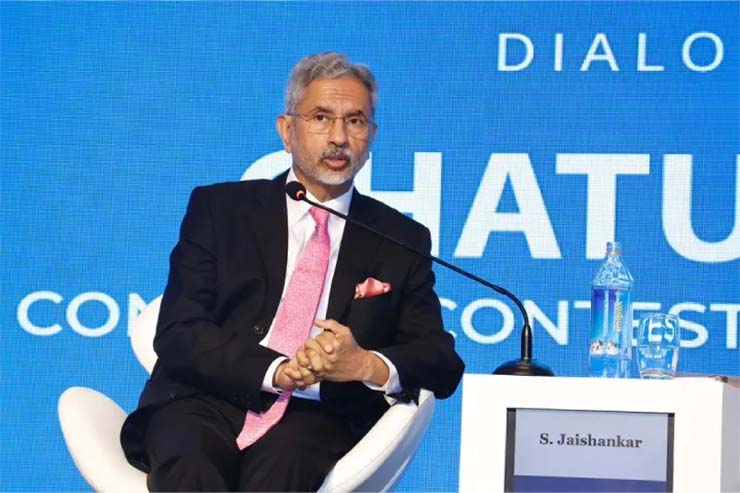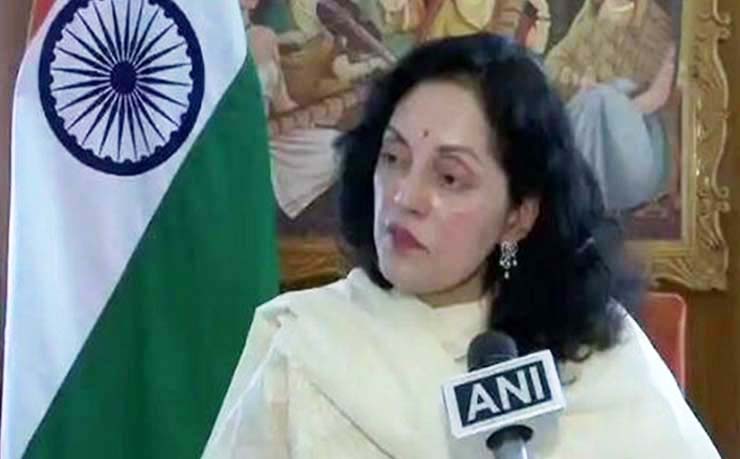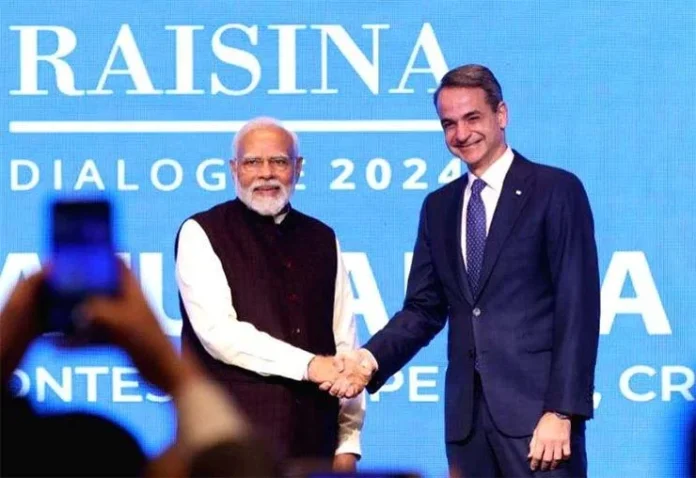New Delhi: The ninth edition of Raisina Dialogue which is India’s flagship conference on geopolitics and geo-economics, spread over three days from February 21-23 saw leading figures from all over the world addressing the most challenging issues facing the international community. The Dialogue was inaugurated by Prime Minister Narendra Modi with the Greek Prime Minister Kyriakos Mitsotakis, as the chief guest delivering the keynote address.
Speaking at the inauguration, the Greek prime minister said that in a world that faces geopolitical tensions and other challenges, India’s rise on the international stage and its position as a growing force at the heart of the G20 makes the country a key ally in the pursuit of peace, security and efforts to fight climate change.
Mitsotakis emphasised that India and Greece have been bound for millennia by economic, cultural and philosophical ties. He said that both countries believe in the fundamental principles of democracy, and enjoy a friendship that is based on mutual respect, common values, and a desire to see people prosper. He pointed out that 2024 is a year of immense geopolitical importance as half of the world will go to the polls. Elections, he felt, are a testament to the lasting power of democracy.
The present world, the Greek PM said, was threatened by climate change, war, geopolitical tensions, mass migration and fears over the rapid growth of Artificial Intelligence (AI).
External Affairs Minister S Jaishankar, who delivered the vote of thanks, remarked that the growing ties between Greece and India were natural, given that both countries “take a long view of challenges and a considered view of opportunities”.
Opening the conference, Dr Samir Saran, President, Observer Research Foundation (ORF), described the present as an “age of unpeace”, riven by conflicts and contests. In spite of these divided times, cooperation is possible, he said, and India’s performance as a consensus-builder has been exemplary. ORF Chairman Sunjoy Joshi defined the first quarter of the 21st century as a period of churn, during which some nations struggled to guard borders while others strove to escape conflict. With democracies under assault, and disinformation trumping truth, forging consensus and devising solutions for all were more urgent than ever before, he observed.
This year’s conference is titled ‘Chaturanga: Conflict, Contest, Cooperate, Create’, and focussed on engaging with compelling issues that are reshaping the world order, negotiate volatility, explore solutions, and craft a collective response that will help lift all, a release said.
To commemorate the Raisina Dialogue’s entry into its tenth year, ORF released a publication titled ‘Raisina Chronicles: India’s Global Public Square’. It is edited by Jaishankar and Dr Samir Saran, and brings together essays by eminent voices from around the globe as well as speeches delivered at Raisina by world leaders and heads of state. According to External Affairs Minister, Raisina Chronicles “captures what we have achieved and indicates the promise ahead”.

It saw participation of representatives from over 100 countries including Ministers, former Heads of State and Heads of Government, Military Commanders, Captains of Industry, Technology Leaders, Academics, Journalists, Scholars on Strategic Affairs, Experts from leading Think Tanks and Youth.
In the course of the three days, participants engaged in discussions over six thematic pillars: (i) Tech Frontiers: Regulations and Realities; (ii) Peace with the Planet: Invest and Innovate; (iii) War and Peace: Armouries and Asymmetries; (iv) Decolonising Multilateralism: Institutions and Inclusion; (v) The Post 2030 Agenda: People and Progress; and (vi) Defending Democracy: Society and Sovereignty.
Over 2500 participants from about 115 countries joined the Dialogue in-person, and the proceedings were viewed by millions across the world on various digital platforms.
“The Dialogue is structured as a multi-stakeholder, cross-sectoral discussion, involving heads of state, cabinet ministers and local government officials, who are joined by thought leaders from the private sector, media and academia,” according to ORF’s website.
Participating in a discussion “Tapestry of Truths: Can the two Hemispheres Agree,” Jaishankar said the failure of the United Nations to find multilateral solutions to issues such as the gaming of trading rules, which many countries have taken advantage of at the expense of the international system, demonstrated the case for a comprehensive reform of the global organisation. “When the UN was invented, it had approximately 50 members. We have four times the members. So it’s a common sense proposition that you can’t continue the same way when you have four times the members. If you look at the last five years, for all the big issues, we have not been able to find a multilateral solution. So the lack of results demonstrates the case for reform,” Jaishankar said.
“In many cases, the rules have been gamed. We speak about globalisation. The fact is that the world trading rules have been gamed. … a lot of our challenges today also emanate from how countries have used that for their benefit at the expense of the international system,” Jaishankar said.
When asked about various complex geopolitical challenges and diverse positions on them by different key countries, such as the US support of Israel in its ongoing war with Hamas and India’s strong relationship with Russia in view of the Ukraine conflict, Jaishankar said the endeavour has to be to find middle ground. “The reality in many cases is we won’t find a middle ground. In addition to the old issues, there are also the new issues. The big debates of the day, connectivity, debt, trade, and how these are leveraged today, are not necessarily all coming out of the West. So the West, as the dominant force earlier, is largely responsible for where we are today. The new players haven’t helped,” Jaishankar said.

He took a veiled jab at China, one of the five permanent members of the 15-member UN Security Council for being the “biggest” opponent of its reforms. India, a founding member of the UN in 1945, played an active role in the drafting of the UN Charter and has been a vocal proponent of reforming the UNSC.
“If you take UN Security Council reform, the biggest opposer is not a Western country. So let’s get the totality of the problem right. We have to battle bit by bit to create groups for change. On many issues, you will get different combinations of countries, and we’ll have to live with a long period of incremental progress before we get to some kind of landing point,” Jaishankar said.
India’s permanent ambassador to the United Nations, Ruchira Kamboj had highlighted that India supports a comprehensive reform of the United Nations Security Council across all five clusters, including an expansion in both the permanent and non-permanent categories.
Kamboj was speaking at the intergovernmental negotiations on Security Council Reform in New York. Meanwhile, the panel discussion at the Raisina Dialogue was centred around whether trust in the international system could be rebuilt, even in the absence of effective multilateral institutions and are emerging powers that are more acceptable to a wider array of international actors obliged to stitch together coalitions that work, or is a patchwork of plurilateral agreements a fait accompli? The discussion also touched on how the “Global South” could be made aspirational.
Hanke Bruins Slot, Minister of Foreign Affairs, Netherlands, January Yusuf Makamba, Minister of Foreign Affairs and East African Cooperation, Tanzania, Jorge Quiroga, former President, Bolivia, and Anwar bin Mohammed Gargash, Diplomatic Advisor to the President, United Arab Emirates were the other participants in the interaction.
– The writer is a senior journalist and media consultant. The views expressed are of the writer and do not necessarily reflect the views of Raksha Anirveda.














